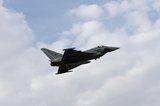US withdrawal from INF upsets China
Since the 1988 signing of the Intermediate-Range Nuclear Forces Treaty (INF) between the Soviet Union and US, the Cold War agreement abolished all nuclear and conventional missiles both for short-range (500–1,000km) and intermediate-range (1,000–5,500 km) missiles. The treaty did not apply to sea-launched missiles.
The only problem with the treaty was that China was still a military backward nation in 1988 with limited conventional-strike ballistic missile capabilities. Moscow began to complain about the problem in the 1990s when China began fielding the road-mobile DF-11/15 short-range ballistic missile armed with conventional warheads.
Though most were aimed at Taiwan, the Russians saw this
Already have an account? Log in
Want to keep reading this article?
More from Defence Notes
-
![High tension in the High North – a wake-up call for NATO’s future Arctic defence efforts?]()
High tension in the High North – a wake-up call for NATO’s future Arctic defence efforts?
Any potential ‘Arctic Sentry’ mission would be months in the planning, but with tensions high in the region given the US’s push for Greenland, NATO countries will need to continue to emphasise their commitment to the region, analysts have said.
-
![Venezuela prepares personnel and equipment for a potential second US attack]()
Venezuela prepares personnel and equipment for a potential second US attack
Defence Minister Gen Vladimir Padrino López has declared that the Venezuelan armed forces “will continue to employ all its available capabilities for military defence”.
-
![As the new year starts, the UK defence spending delay continues]()
As the new year starts, the UK defence spending delay continues
The UK’s defence spending commitments remain uncertain as the government’s Defence Investment Plan, which had been due by the end of 2025, is yet to be published.
-
![How might European countries look to tackle drone incursions?]()
How might European countries look to tackle drone incursions?
Disruption of infrastructure in Europe, whether by cyberattack, physical damage to pipelines or uncrewed aerial vehicles flying over major airports, as has happened more recently, is on the rise. What is the most effective way of countering the aerial aspect of this not-so-open warfare?
-
![Taiwan approved for $11 billion weapon purchase from US]()
Taiwan approved for $11 billion weapon purchase from US
The US State Department’s approval of a multi-billion-dollar sale of weapons to Taiwan includes tactical mission networks equipment, uncrewed aerial systems, artillery rocket systems and self-propelled howitzers as well as anti-tank guided missiles.
-
![Ireland spells out $2.3 billion shopping list in five-year defence spending plan]()
Ireland spells out $2.3 billion shopping list in five-year defence spending plan
Ireland’s multi-annual investment in capital defence spending is set to rise from €300m in 2026 to €360m in 2029–2030 with major upgrades across land, air, maritime and cyber domains.


























